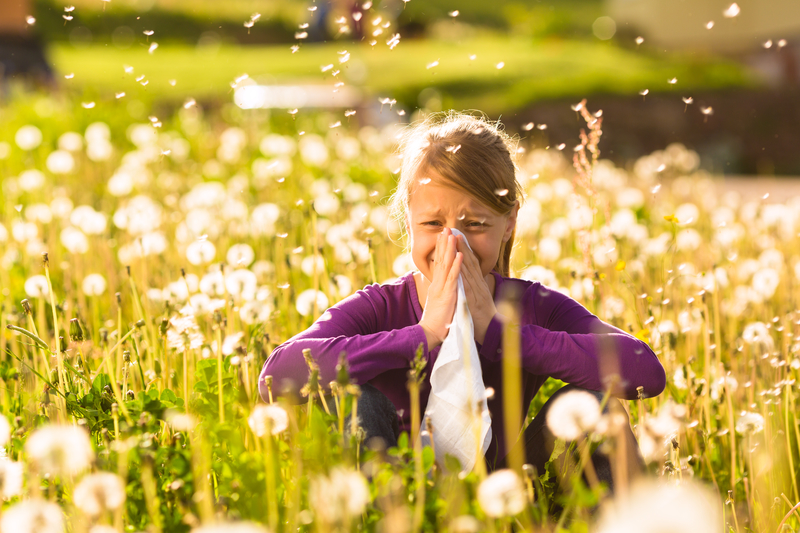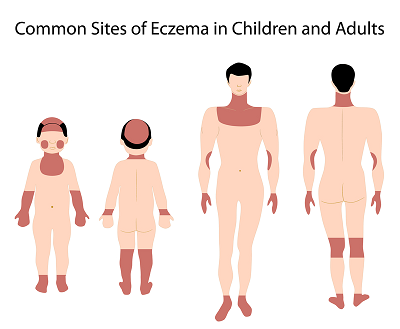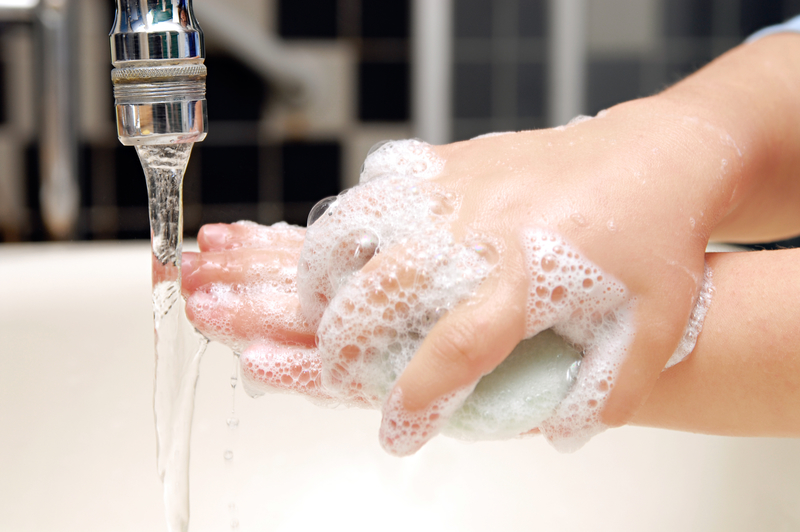Primary Times - the definitive what’s on and where to go family guide of activities and events for children of primary school age. Things to do with your kids during the school holidays including arts and craft activities, music and theatre for children, parties, competitions, days out, and family attractions along with term time drama schools, dance classes, after school clubs and sports activities. Things to do at a place near you!
Healthy Family – Coping with Allergies
With allergic reactions and intolerances making headlines on a daily basis, more and more parents are  now on the look out for signs of allergies in their children.
now on the look out for signs of allergies in their children.
Thankfully, most allergies are irritating rather than dangerous, but what should we be looking out for and when is it time to seek medical advice?
What is an allergy?
An allergy is an abnormal reaction of the body to a substance. It is this substance, otherwise known as allergen that causes the allergic reaction.
This happens when the immune system has been triggered into releasing Immunoglobin E, an antibody that produces and disperses histamines. It is these histamines that will cause someone to suffer from unpleasant symptoms.

What are the most common symptoms?
Usual symptoms of an allergy may include an itchy, blocked or watery nose, sore and itchy eyes, sneezing, skin rashes, sickness and diarrhoea or headaches.
They can also spark off other reactions and medical conditions such as:
Hay Fever
It is estimated that 1 in 4 children in the UK suffer from Hay Fever, a seasonal condition, symptomatic of an allergy to pollen and spores. Common signs such as sneezing and having a runny nose can be especially tricky for a child, who finds it hard to concentrate in school, and is easily distracted or irritable. To find out more call 01322 619864 or visit www.allergyuk.org
Asthma
Asthma is one of the most common long-term medical conditions, with 5.4 million people and one in 11 children currently receiving treatment for it in the UK.
Asthma can be activated by an allergic reaction, so when a sufferer comes into contact with something that irritates their airways such as pollen, dust mites or pollution they may start to wheeze, cough, become breathless and have a tight chest.
Talk to your doctor if you suspect your child is suffering from asthma. Visit www.asthma.org.uk or call the Asthma UK Helpline on 0300 222 5800.
Eczema
Eczema, otherwise known as dermatitis, is a dry skin condition which is highly individual in its nature. In the UK, one in five children and one in twelve adults have eczema.
Often, the condition is triggered by a reaction to an allergen or irritant. Skin can become red, sore and sensitive, and itchy rashes usually develop.
Visit the National Eczema Society website at www.eczema.org or call the confidential helpline on 0800 089 1122 to find out more about the condition and how to treat it.
Anaphylaxis or anaphylactic shock
In very severe cases an allergen can trigger an anaphylactic shock. If this happens, the child will have difficulty breathing, could collapse and even die. If you see this type of reaction, don’t wait, dial 999 immediately.
What to do if your child has an allergy?
Allergies are often hereditary, so if your child or anyone within your family suffers from eczema and asthma he or she may also be more prone to other symptoms, such as hay fever. Generally, a third of the population will suffer from an allergy at some point.
If you suspect your child may have an allergy, make a note of the date, time, place and symptom in a diary. Present this information to your doctor who may decide to run tests to establish the exact cause of the allergic reaction, or refer your child to a specialist.
How to cope with allergies:
Simple preventative measures can make a huge amount of difference:
With a pollen allergy: First of all, try to identify what pollen is causing the allergic reaction. This will allow you to plan ahead and prepare for any possible allergic reaction.

When the pollen count is very high, there are several things you can do to make life easier.
Ensure all medication, including eye drops and nose drops, is taken when advised by either a doctor or pharmacist; shower before bedtime; keep the windows closed; encourage plenty of hand-washing; keep the bedding clean and make sure the bedroom is as dust free as possible.
You may wish to place a sheet over your child’s duvet during the day and fold it back gently just before bedtime.
With a dust mite allergy: Damp away dust on a daily basis and wash bedding, cuddly toys and blankets on a hot wash.
With a sting allergy: Some children can have an allergic reaction to a wasp or bee sting. To prevent swelling, raise the part of the body that has been stung then use a spray or cream containing antihistamine or local anaesthetic.

With a food allergy: Become a label detective and read everything. Educate yourself on alternative names for the potential allergen.
Medication for relief of the symptoms:
Most parents of allergy sufferers head for the nearest chemist to stock up on over-the-counter remedies. Medication comes in the shape of decongestants and antihistamines in the form of pills, nasal sprays and eye drops. Most provide rapid and welcome relief from the effects of histamines. Remember, always to check with the doctor or pharmacist before buying any medication for your child.




